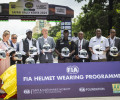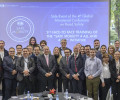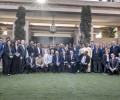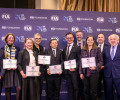FIA World Council for Automobile Mobility and Tourism takes place ahead of the 2017 FIA Mobility Conference
Prior to the official opening of the 2017 edition of the FIA Mobility Conference, the World Council for Automobile Mobility and Tourism convened to receive updates and discuss proposals relating to a wide variety of key projects
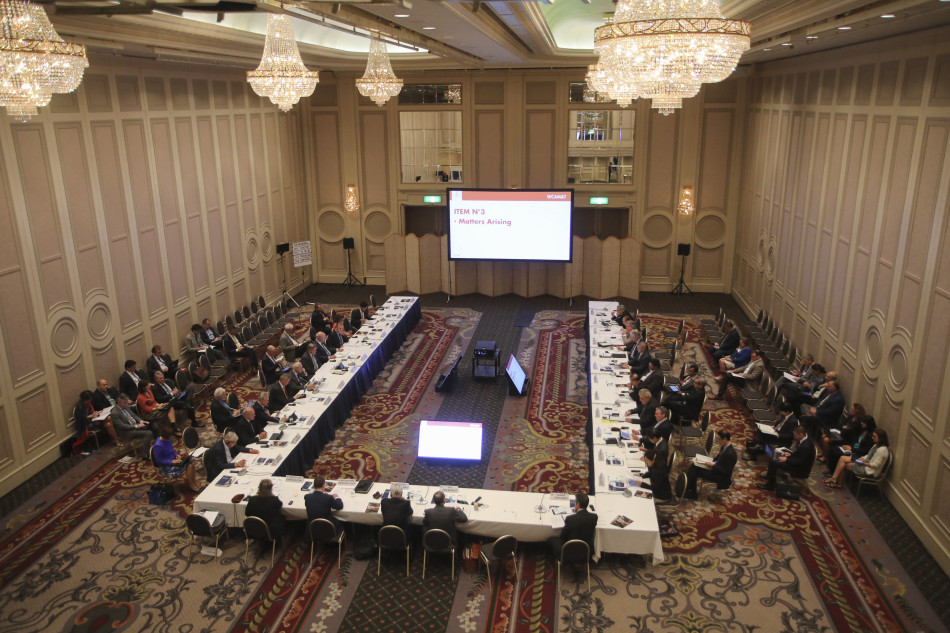
Jean Todt, FIA President, began by welcoming the Council members to Tokyo for the meeting, saying the gathering was a fitting way to begin a week of productive conversation between the FIA and its Member Clubs.
The Council was presented with a review of the progress made on the Mobility Strategy of the FIA since the last World Council in Bruges, Belgium earlier this year. Highlighted areas were Club Development, Advocacy, Services, and Development.
One of the main outcomes of the discussion was the importance of advocacy and the need to elevate sustainable mobility as an issue.
FIA Deputy President for Automobile Mobility and Tourism, Brian Gibbons, said: “I am pleased to have begun this Mobility Conference week in Tokyo with a constructive and informative World Council. The feedback we have had from broad consultation with Members has been clear. Road safety remains a paramount concern, but it is also acknowledged that sustainable mobility has to take an increasing profile on our agenda.”
Closely linked to this issue of sustainable mobility was the review of the FIA Smart Cities initiative, which received positive feedback from the assembled members of the World Council. FIA Smart Cities was launched to encourage relevant stakeholders to address the pressing concerns surrounding mobility in urban areas, and it has done this at four main events in 2017.
Using the exciting platform of the FIA Formula E Championship, which demonstrates the cutting edge of electric vehicle technology through motor sport in the heart of urban centres, the initiative has engaged with policy makers and private sector leaders in Mexico City, Paris, Berlin and Montreal, and it is planned to visit yet more key locations over the coming year.
Following this review, the main priorities of the Sustainable Mobility Programme were identified in a presentation to the Council. This included firstly a green NCAP-style programme, which aims to create a robust and transparent rating system to help consumers and industry to identify the ‘cleanest’ choice for their needs, as well as various issues surrounding Accessibility.
Road safety advocacy, campaigns and partnerships were next on the agenda, and Council members were reminded of the #3500LIVES road safety campaign toolkit that is available to all Member Clubs.
The outcomes of the IPSOS study on the impact and visibility of the campaign, research that the FIA commissioned in Austria and Thailand, were presented. So far, the study has revealed that in Vienna the campaign was well received and generated positive reactions to the key messages on road safety, while the results from Thailand will be prepared over the coming months.
As well as the Activity Report of the FIA High Level Panel for Road Safety (HLP), the Council also heard about the Panel’s activity in the area of promoting Global Minimum Vehicle Safety Standards. It was reported that the HLP had, together with the UNECE, engaged with global automobile manufacturers in a bid to establish a voluntary commitment on Global Minimum Vehicle Safety Standards. An agreement was reached to work on a possible roadmap for a voluntary agreement, including the core safety standards to be considered and a timeline for their application.
The meeting concluded with the approval of a number of proposals from the FIA Statutes Review Commission – notably the creation of two joint Sport and Mobility Commissions: the FIA Disability and Accessibility Commission and the FIA Environment and Sustainability Commission.

 Facebook
Facebook Twitter
Twitter
